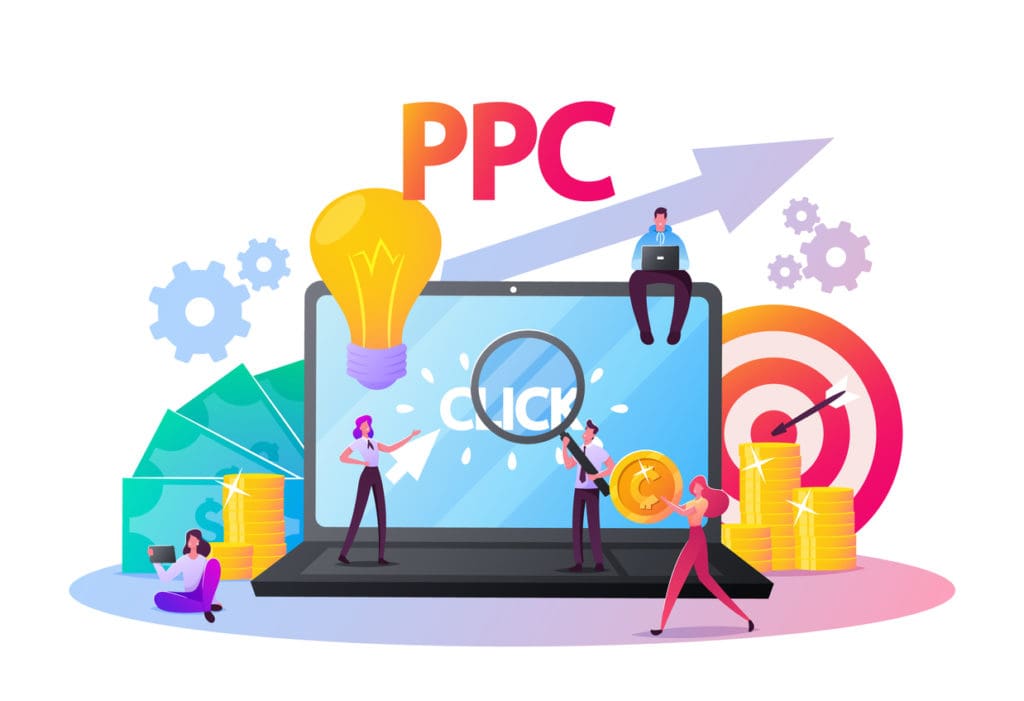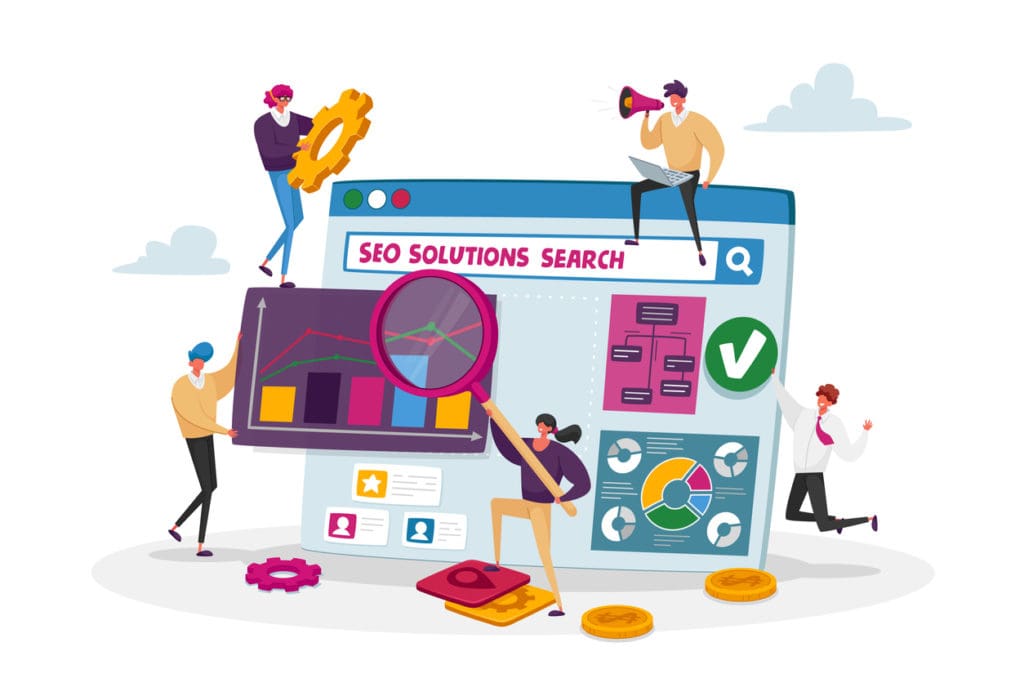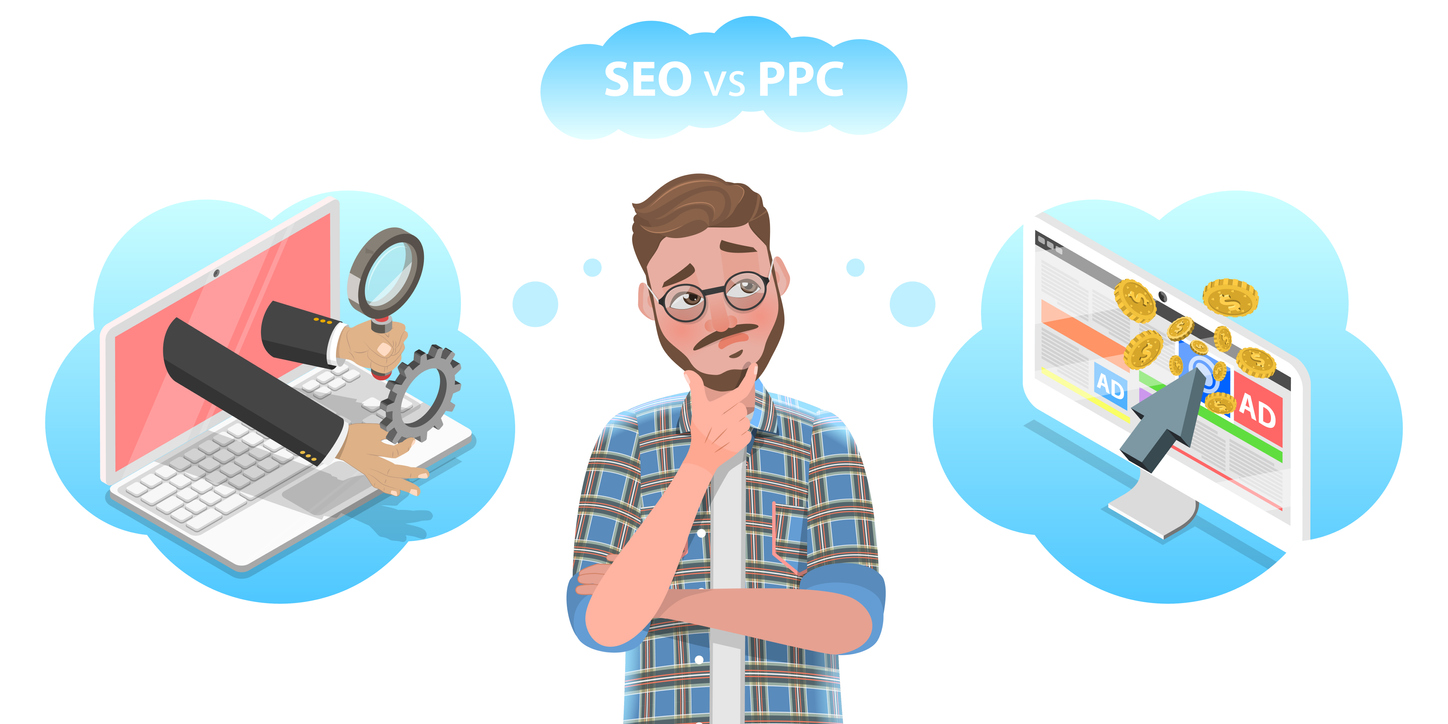Table of Contents
In the ever-evolving realm of digital marketing, where visibility and engagement are prized commodities, the race for supremacy is often between two formidable contenders: Pay-Per-Click (PPC) advertising and Search Engine Optimization (SEO). But before you take sides in the PPC vs SEO showdown, it’s imperative to introspect and address a few pivotal questions that will pave the path to a strategic decision.
Do you prioritise a long-term strategy or immediate results?
Are paid clicks worth the investment, or are organic marketing techniques more profitable?
Ultimately, the best approach aligns with your company’s objectives and resonates with your target audience.
Are you ready to delve into the worlds of PPC and SEO? Our expert guidance guides you through their intricacies, advantages, and difficulties. With our assistance, you’ll be empowered to make informed choices shaping your online triumph. Let’s get started!
Introduction
In digital marketing, PPC and SEO are vital in increasing online exposure and website traffic. While their methods may differ, they aim to drive relevant website traffic.
Therefore, understanding the basics of PPC and SEO is crucial for any modern digital marketer.
Pay-Per-Click (PPC)
PPC is a digital advertisement where marketers pay for every click their ad receives. Google Ads is a widely used platform allowing businesses to bid on keywords for instant visibility.

Core PPC Principles:
Keyword Targeting
PPC campaigns focus on choosing pertinent keywords that complement a company’s product or service offerings. When consumers lookup phrases connected to these keywords, adverts are displayed.
Bid Management
Advertisers place bids on keywords to specify the price they are ready to pay for each click. Recommendations, as well as other variables, influence the position of the ad in search results.
Ad Creatives
The ad language and graphic components are designed to catch consumers’ eyes and encourage clicks. Ads that are captivating, concise, and in line with user intent are effective.
Benefits Of PPC Advertising
Let’s examine the main advantages that make PPC an essential tactic:
- Utilising PPC advertising can swiftly increase visibility and accurately target your desired audience with your ads, reaching potential customers actively searching for related keywords.
- With PPC, you have full control over your advertisements, including budget and schedule.
- You can also access comprehensive metrics to track performance and make informed choices.
- With PPC advertising, you can manage your expenses by setting limits on your spending.
- You will only be charged for real interactions with potential customers, which makes it a practical and affordable solution.
- PPC advertising targets potential customers in specific locations and is perfect for time-sensitive promotions, events, or product launches.
- It is particularly useful for local businesses looking to attract more clients.
- Incorporating PPC into marketing efforts can complement other strategies and create a comprehensive online presence plan.
- Additionally, it enables A/B testing to achieve optimal outcomes.
SEO (Search Engine Optimisation) Definition and Essential Perspectives:
Enhancing a website’s relevance and authority is the key to improving its visibility in search results through SEO. Unlike PPC, SEO concentrates on natural ranking improvements rather than paid clicks.

Basic Concepts Behind SEO
Keywords and Content
SEO depend on knowing the keywords visitors are most likely to type into search engines and carefully adding those keywords into website content.
On-page Optimisation
Title tags, meta descriptions, headers, and internal links are examples of on-page features that can be optimised to communicate importance to search engines better.
Off-Page Factors
Social media mentions and backlinks from trustworthy websites increase the authority and trustworthiness of a website.
PPC and SEO have the same objective of driving targeted website traffic but use different techniques. PPC relies on ads, while SEO relies on organic search queries.
Benefits of SEO
Let’s delve into the advantages of SEO, shedding light on why it holds its own in the PPC vs SEO debate.
- SEO can improve your search ranking, resulting in steady traffic and increased credibility.
- A strong online presence through SEO can build customer trust and enhance your reputation.
- Investing in SEO is a cost-effective marketing strategy that offers long-term benefits.
- High search engine rankings can provide a great return on investment, and organic search results often receive more clicks than paid ads.
- Unlike pay-per-click advertising, SEO improves online presence by generating continuous traffic through valuable and relevant content.
- To achieve high search engine rankings, it is essential to have good content.
- It is important to keep yourself informed about algorithm changes and providing valuable information to make your website attractive to users is important.
- SEO can improve your website’s user experience, draw in more traffic, establish you as an authority in your field, and boost search engine rankings.
Delving into the Nexus: A Comprehensive Comparison of PPC vs SEO
COMPARATIVE ANALYSIS PPC VS SEO
| TARGETING AUDIENCE AND REACH |
| PPCs Precise Targeting | SEOs Broader Organic Search |
| PPC advertising allows precise targeting based on demographics, hobbies, online behaviour, and keywords. This increases the chance of interaction and conversion. | To attract website visitors, you can use SEO or PPC. SEO takes time but attracts diverse visitors, while PPC gives instant results but may only reach a narrow audience. Choose the strategy that aligns with your goals. |
| COST CONSIDERATIONS |
| PPC’s Predictable Expenditure | SEO’s Investment in Time and Resources |
| With PPC, you’ll only be charged when someone clicks on your ad, making managing your budget simple. | Optimising your website and building valuable links through SEO requires dedication, resources, and time. While the benefits may not be immediate, they are long-lasting and sustainable, promoting your website’s visibility and overall health. |
| ORGANIC VS PAID TRAFFIC |
| PPC’s Paid Traffic | SEO’s Organic Long-Term Traffic |
| PPC gets traffic through paid clicks but stops when the campaign ends or funding runs out. | SEO leads to lasting traffic growth through optimised content and rankings without constant expenditure. Results may take time, but the traffic can be dependable and long-lasting. |
| CONVERSION RATES AND ROI |
| PPC’s Immediate Conversion Potential | SEO’s Long-Term ROI |
| PPC ads lead to quick conversions, targeting those seeking specific goods or services. | Improving your website’s SEO can provide a substantial return on investment. It boosts credibility and trust, thanks to the influx of organic traffic. This increases interactions and conversions, making it a vital tool for long-term growth. |
SEO’s Impact on PPC and Vice Versa
Digital marketing campaigns can benefit from using PPC advertising and SEO combined.
This section will explore how these two strategies can complement each other, leading to sustained success.
Increasing Quality Score and Organic Ranking:
Regarding online advertising, it’s important to remember that PPC is not the only thing that matters. Building a solid foundation for SEO can help boost your organic ranking and improve the Quality Score of your PPC ads. By optimising your website, you can also lower your expenses per click.
Using PPC as an SEO Testing Ground
Analysing successful PPC keywords can improve your SEO strategy, save time, and attract targeted traffic. Optimise your efforts for better results and increase visibility to potential customers.
Get Real-Time Performance Insights:
PPC advertising gives instant feedback, allowing you to test different ad wording, keywords, and targeting strategies. By analysing the results, you can improve your SEO strategies and prioritise keywords in your content plan that perform well in PPC.
Maximise Your Presence on SERPs
Appearing in sponsored and organic search results improves your visibility on the Search Engine Results Page (SERP). This dual presence increases the chances of consumers clicking through to your website, which can lead to more conversions.
When to Use PPC and When to Focus on SEO
Both PPC and SEO have unique benefits that cater to specific objectives, and no universal solution fits every situation.
Let’s look at some scenarios where each method is applicable.
PPC’s Power Play: Precise and Rapid Results
Time-Conscious Promotions:
PPC excels when efficiency is key.
PPC can quickly get your message in front of your audience if you have a limited-time deal, event, or campaign that needs instant attention.
Specific Campaigns and Keywords:
PPC enables you to carefully target audiences and keywords if you’re running targeted campaigns or focusing on a certain market. This is especially useful in niches where keyword competition is fierce.
Instant Visibility:
PPC might immediately boost you if you require immediate visibility in search results. Even if your website isn’t ranking naturally, your advertisements can be displayed prominently.
Long-term growth and authority building through SEO
Sustainable Organic Traffic:
SEO is how firms seek steady, long-term growth. It creates the groundwork for consistent organic traffic that may last long after ads are over.
Building Credibility and Trust:
The credibility of SEO is correlated with its organic ranks. SEO is showcasing your business as a trustworthy source, developing authority in your sector, and building trust with your audience.
Depth and quality of the material are important factors for SEO:
SEO may draw interested individuals looking for useful information if your plan involves developing in-depth resources that meet consumers’ demands.
Use PPC and SEO together to boost your online presence. They work best in tandem and can enhance each other’s strengths for optimal results.
Let’s Summarise.
It’s not about picking one method over the other in the changing world of digital marketing. Combining them into a seamless tapestry that uses both SEO and PPC’s advantages. This combination will have a lasting effect. A strong SEO strategy may strengthen your PPC campaigns, and quick feedback from PPC can help you improve your SEO efforts. To maximise your digital reach and potential as you negotiate the always-changing landscape of internet marketing, think about combining the two strategies. Remember, it’s an agreeable combination of “and,” not a “either-or” conflict.
FAQ
1. What is the main difference between PPC and SEO?
PPC (Pay-Per-Click) involves paid advertisements that appear on search engine results pages, while SEO (Search Engine Optimization) focuses on optimising your website to rank organically in search results.
2. Which strategy delivers quicker results, PPC or SEO?
PPC typically provides faster results as ads appear immediately after setup, whereas SEO takes time to improve your website’s organic ranking.
3. Is PPC more expensive than SEO?
PPC can be more expensive upfront, as you pay for each click, while SEO costs involve optimising content, technical aspects, and building links.
4. Can I use both PPC and SEO simultaneously for my website?
Using both PPC and SEO can be highly effective. PPC offers immediate visibility, while SEO provides long-term growth and credibility.
5. Which strategy is better for long-term business growth, PPC or SEO?
SEO is better suited for long-term growth as it builds a strong organic presence over time, while PPC is ideal for short-term campaigns.

